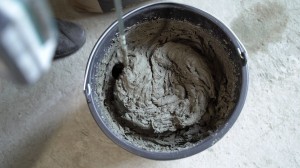How long does dry pack mortar take to cure?
Dry pack mortar, also known as dry pack grout or dry pack concrete, is a mixture of cement, sand, and minimal water content. It is commonly used for applications such as repairing concrete surfaces, setting shower pans, or constructing slope floors. The curing time of dry pack mortar is an essential factor to consider to ensure its strength and durability. While the exact curing time may vary depending on various factors, here is a comprehensive explanation of the curing process and the typical timeframes involved.
Curing is the process of maintaining appropriate moisture and temperature conditions to allow the mortar to develop its full strength and durability. During the curing period, the cementitious materials in the dry pack mortar undergo a hydration process, where they react chemically with water to form a solid and durable structure.
- Initial Setting Time: The initial setting time refers to the time it takes for the mortar to harden to a point where it can support some load without significant deformation. For dry pack mortar, the initial setting time is relatively short, usually around 1 to 4 hours, depending on the specific cement and additives used.
- Final Setting Time: The final setting time is the duration required for the mortar to reach its maximum hardness and strength. This time can vary significantly, ranging from 6 to 24 hours or more, depending on factors such as cement type, mix design, ambient temperature, humidity, and thickness of the application.
- Curing Time: After the initial and final setting times, the mortar continues to gain strength and durability through the curing process. Curing is typically done by keeping the mortar moist, which allows for continued hydration of the cementitious materials.
- Initial Curing: The initial curing period is crucial for preventing premature drying of the mortar. It usually involves covering the applied dry pack mortar with a plastic sheet or damp curing blankets to retain moisture. This phase typically lasts for 24 to 48 hours.
- Intermediate Curing: Once the initial curing phase is complete, the mortar should be kept moist to facilitate proper hydration and strength development. This can be achieved by periodically spraying water on the surface or by using curing compounds that form a moisture barrier. Intermediate curing typically continues for 7 to 14 days.
- Long-Term Curing: Dry pack mortar continues to gain strength over an extended period. Although it may achieve sufficient strength for some applications after a few days or weeks, it is recommended to allow for long-term curing to maximize its durability. This can last anywhere from 28 days to several months, depending on the specific project requirements.
It is essential to note that the curing time can be influenced by external factors such as temperature, humidity, and the specific mix design of the dry pack mortar. Higher temperatures generally accelerate the curing process, while lower temperatures may extend the curing time. Additionally, maintaining proper moisture levels during curing is critical to prevent cracking and ensure optimal strength development.
To determine the exact curing time for a specific dry pack mortar application, it is crucial to consult the manufacturer’s recommendations and follow the guidelines provided. The manufacturer’s instructions may account for the specific cement type, mix design, and environmental conditions to provide accurate curing timeframes for the best results.
In summary, the initial setting time of dry pack mortar is relatively short, typically 1 to 4 hours, while the final setting time ranges from 6 to 24 hours or more. Curing involves maintaining moisture in the mortar, with initial curing lasting 24 to 48 hours, intermediate curing lasting 7 to 14 days, and long-term curing extending for several weeks to months. Adhering to proper curing practices is essential to ensure the strength, durability, and overall performance of the dry pack mortar.
Post time: Mar-13-2023

